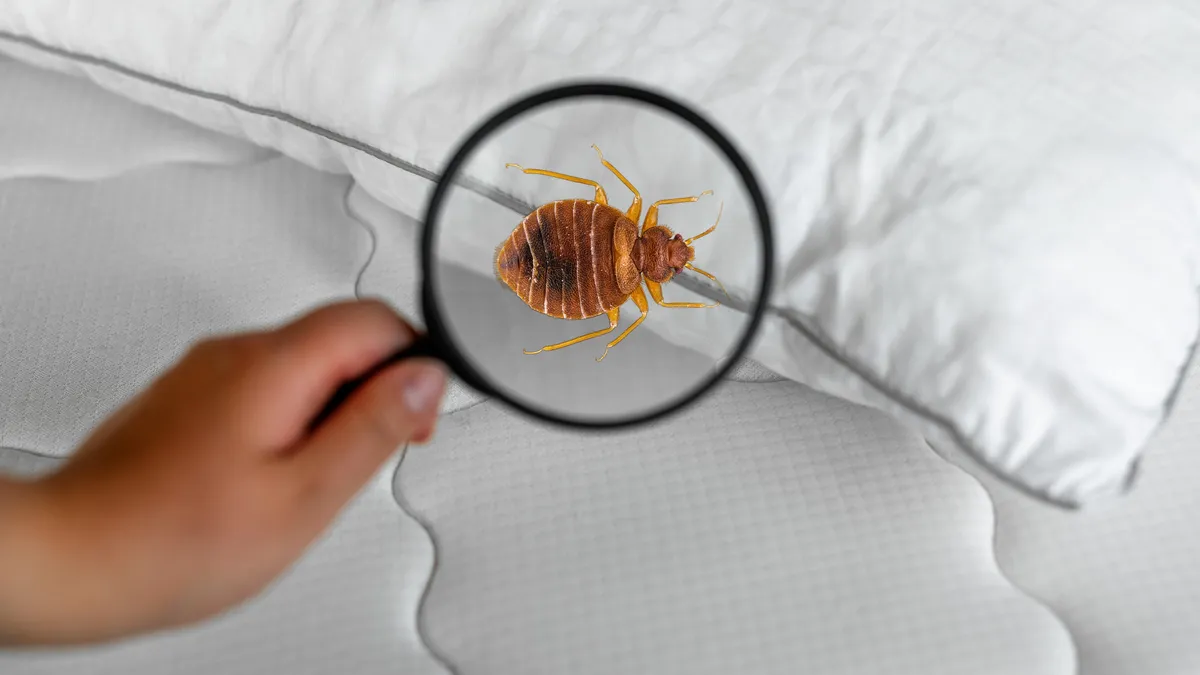Hotel Tech-in is our regular feature that takes a closer look at emerging technology in the hospitality industry.
In October, hotels in Paris were hit with an issue that hotel managers everywhere fear: bedbugs.
Just months before the city was set to host the Olympics, scheduled for this summer, the French capital garnered headlines for an invasion of pests. “Paris is crawling with bedbugs,” reads one from CBS News.
It was bad news for hotels, with hotel owners shelling out thousands for exterminators. But for Robert Fryers, co-founder and CEO of Spotta, it was an opportunity.
Fryers, an engineer, started Cambridge, U.K.-based Spotta with his co-founder in 2017 to develop technology capable of identifying bedbugs on hotel mattresses. Since then, the hotel industry has responded positively, with hotels in Europe — and increasingly the U.S. — installing Spotta devices.
In December, the startup netted over $3.7 million in funding to expand its business and grow its team. And in January, Spotta announced a partnership with Comcast’s MachineQ, a Philadelphia-based connectivity solutions provider, that Fryers hopes will bring Spotta technology to more hotels in the U.S.
The bugs have been coming back, and they've been coming back with a bit of a vengeance.

Robert Fryers
co-founder and CEO of Spotta
Hotel Dive sat down with Fryers and Bryan Witkowski, head of product and strategy at MachineQ, to discuss the technology’s plans for expansion, as well as why bedbug detection is so important for hotels in the first place.
The issue
The technology may be new, but the problem isn’t. Bedbugs, according to Fryers, have “coexisted with humans for as long as we've been around.”
“When they were a really big problem was when we were industrializing into living in big cities, and we mostly dealt with them in the 20th century with loads and loads of chemicals,” he said. “And then at the beginning of this century, we started banning all of those chemicals, very sensibly, because sleeping in them is not a good idea. But that means that the bugs have been coming back, and they've been coming back with a bit of a vengeance.”
What’s more, bedbugs don’t discriminate. “It doesn't matter whether you are right at the bottom end of the budget range, or a super high-end luxury hotel,” said Fryers. “They all get them.”
The damage of bedbugs goes well beyond exterminator fees. A 2015 University of Kentucky study found that a single online review that mentions bedbugs can lower the value of a hotel’s room by between $23 and $38 per night. That impact can last months. “The real pain comes from the reputational damage, the loss of customer loyalty,” Fryers said.
But sweeping the issue under the rug can backfire, he added. “The ones who it absolutely blows up are the ones who tried to ignore it [...] tried to pretend it doesn't exist.”
The technology
The technology itself, he said, is unobtrusive to guests.
Spotta’s device is the size of a pack of cards, which is tucked under a hotel mattress. The device features an image sensor, which uses AI to identify any bugs it detects.
If it finds a bedbug, hotel management will get an email with a photo, plus which room it was detected in.
MachineQ connected with Spotta after some clients asked about solutions for bedbugs. “We were stumped in the meeting,” Witkowski said. Since then, Witkowski has also noticed how tough it can be to discuss the topic.
“Talking about bedbugs is kind of hard,” he said. “We were talking to a GM at his hotel in their restaurant, and we're talking in whispers, of course. It's a very sensitive subject.”
But since the events in Paris, Fryers has noticed a “transition to being proactive.”
In Europe, he said, “quite a few of the hotels that are using Spotta now have a sticker in the window saying spots are protected. And that level of openness is coming.”
Fryers said there are possibilities for more applications in the future. He noted that food and beverage establishments, in particular, could benefit from more bug detection.
In the meantime, Spotta will focus on expanding in the U.S. “As you can imagine, [the devices] have been flying off the shelves in Europe over the last few months,” he said. “We do have some sites already in the U.S., but this year ... [we will] really drive that forward.”


















